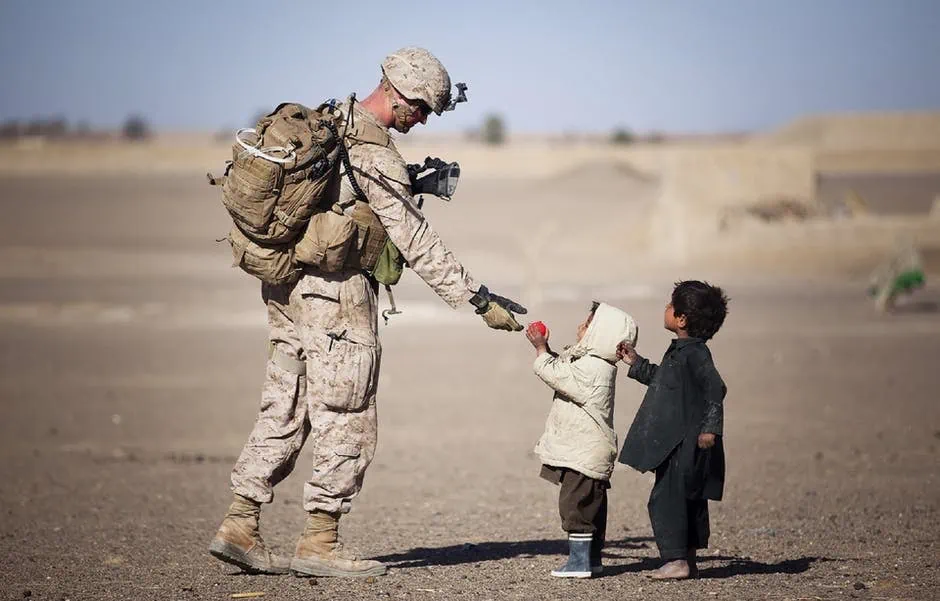
Veterans and Addiction: A New Type of War
The war doesn’t end for some soldiers returning home from deployment. The traumatic experiences from battle may continue to replay in their minds until they will try anything to escape reliving the trauma.
Veterans who have seen warfare may develop co-occurring disorders, such as depression, anxiety, and post-traumatic stress disorder (PTSD), increasing addiction risk. Traumatic events such as battle exposure and countless deployments can lead to drug or alcohol misuse, which frequently progresses to addiction. Military sexual trauma (MST) is also a common source of PTSD, SUD, anxiety, and depression in both male and female veterans.
Soldiers and Substance Abuse Statistics
Substance use disorder (SUD) is a significant problem among United States military veterans. The Department of Veterans Affairs (VA) and other agencies have tried numerous times to decrease problematic substance use over the past 20 years. Still, the rates of veterans with SUD continue to increase.
In 2018, 3.7 million veterans had a SUD or a mental health disorder. Approximately one out of every three veterans who seek help through the VA for SUD also have PTSD. More than one in every four veterans with PTSD is diagnosed with SUD. Studies also show that male veterans aged 18-25 years have higher SUD rates than civilians of the same age.
Why Veterans Turn to Substance Use
Veterans with multiple deployments, exposure to combat, and injuries from battle, or MST are at the most significant risk for developing SUD. The pressures of training, deployment, returning home, and other aspects of military life may contribute to the differences in substance use between military service members and civilians.
The zero-tolerance policies, confidentiality concerns, and the stigma associated with soldiers continue to be obstacles in recognizing and treating substance abuse in military workers.
Some of the reasons why veterans turn to substance use include:
- Traumatic events: Many traumatized veterans returning home used substances to self-medicate. They use drugs or alcohol to numb the pain, only to become more depressed and more anxious.
- Chronic pain: Some veterans are prescribed opioid pain medications for injuries, which are highly addictive.
- Anxiety: Anxiety is a common disorder in veterans. To control the symptoms of anxiety, a benzodiazepine may be prescribed, which also has the potential for addiction.
- Reluctance to seek help: Many veterans delay looking for help with their substance abuse or PTSD due to feeling ashamed for letting their problem take over their life. Veterans could also feel like their problems are under control and do not realize they need help until they are at rock bottom.
- Traumatic brain injuries: Between 2000 and 2017, more than 375,000 veterans were diagnosed with a traumatic brain injury (TBI). A TBI affects how soldiers think and behave while impacting their physical functioning.
- Losing structure in daily routine: Veterans have spent most of their time in the military following orders from those of a higher rank. They grew accustomed to not making decisions for themselves. The newfound freedom and lack of coping skills can be overwhelming and can leave veterans unable to make the right choice regarding alcohol or drug use.
Treatment Options for Veterans
The VA provides treatment for veterans with SUD and mental illness. Additionally, 27% of veterans in the VA care are diagnosed with PTSD and SUD. Studies have shown that simultaneously treating SUD and PTSD benefits the client. Because of this, concurrent therapies are offered by the VA.
Trauma-focused psychotherapies use different techniques to help individuals process their traumatic experiences, which include:
- Cognitive processing therapy (CPT)
- Prolonged exposure (PE)
- Eye Movement Desensitization and Reprocessing (EMDR)
In addition, effective treatments for SUD include:
- Relapse prevention
- Cognitive-Behavioral Therapy (CBT)
- Contingency management
Concurrent treatment of PTSD and SUD using prolonged exposure (COPE) is a therapy that integrates both trauma-focused PTSD treatment and SUD treatment. COPE is a manual-based form of trauma-focused CBT with exposure to concurrently address PTSD and SUD.
Veterans Seeking Help for Substance Use Disorder
Seeking help for SUD can feel overpowering. The first step is to talk to a VA health professional for resources. In addition, the Substance Abuse and Mental Health Services Administration (SAMHSA) offers the behavioral health treatment services locator to help find mental health services by area. Helpful information about treatment facilities that provide specialty can be found by using SAMHSA's Substance Use treatment locator.
Present Moments Recovery is veteran-owned and passionate about helping military members with SUD. A military program is offered with a specific track that addresses SUD, loss, grief, self-care, sober support networks, and much more to provide long-term recovery tools.
Soldiers may experience traumatic events while serving in the military, such as battle exposure and countless deployments that can lead to drug or alcohol misuse, often progressing to addiction. If you or a loved one are struggling with addiction and ready to start your recovery process, we want to help you. In San Diego, California, Present Moments Recovery is a veteran-owned facility that provides many treatment options to accommodate your busy schedule. In addition, our unique treatment process was created to help military spouses or adult children of military members with substance use disorder (SUD). The military-specific route addresses SUD, grief and loss, healthy self-care during deployments, how to establish a sober support network in a new location, healthy leisure activities during command functions, and where to find resources in the military community to support a lifestyle of recovery. Call us today to learn more about our services at (619) 363-4767.
Categories
Addiction





